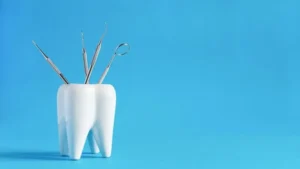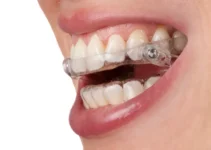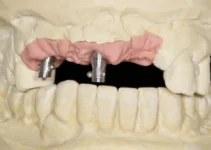Maintaining optimal oral health goes beyond the occasional dentist visit. Effective dental care involves a daily routine that protects your teeth and gums from decay and disease. This article explores simple yet profound steps you can take at home to enhance your dental hygiene. From proper brushing techniques to the right choice of toothpaste, and the importance of flossing and regular check-ups, we provide you with essential advice to keep your smile bright and healthy. Understand how diet affects your dental health and what you can do to avoid common oral health problems.
Daily Dental Care Tips
Taking care of your teeth and gums is not just about maintaining a bright smile. Proper daily dental care is crucial for preventing cavities, gum disease, and even heart disease. By integrating effective dental care practices into your routine, you can ensure that your oral health is optimal, which contributes significantly to your overall health. Here are some essential tips to maintain a healthy mouth.
Many people underestimate the importance of a comprehensive dental hygiene routine. Consistent and thorough dental care can help you avoid many dental problems and ensure that you have a healthy, beautiful smile for years to come. Let’s delve into some specific areas where you can improve your daily dental care.
Brushing Techniques
Brushing your teeth might seem like a routine task, but effective brushing techniques are often overlooked. It is essential to brush your teeth at least twice a day, ideally after meals. However, how you brush is just as important as how often you brush.
Ensure you are using a toothbrush with soft bristles to avoid damaging your gums. Hold the toothbrush at a 45-degree angle to your gums and use gentle, circular motions. This technique helps to remove plaque effectively without causing damage to your enamel or gums.
Avoid using a back-and-forth motion, which can lead to gum recession and wear down the enamel. Make sure to brush all surfaces of your teeth – the outer, inner, and chewing surfaces. Don’t forget to brush your tongue as well to remove bacteria and freshen your breath.
Replacing your toothbrush every three to four months, or sooner if the bristles are frayed, is critical for maintaining effective oral hygiene. A worn-out toothbrush won’t clean your teeth properly and can harbor harmful bacteria.
Flossing Best Practices
Flossing is an integral part of dental care that many people tend to skip. However, it is as important as brushing. Flossing helps to remove food particles and plaque from between the teeth and under the gumline where a toothbrush can’t reach. Regular flossing can prevent gum disease and cavities.
To floss effectively, use about 18 inches of dental floss. Wrap most of it around your middle fingers, leaving about 1-2 inches for your teeth. Gently slide the floss between your teeth using a back-and-forth motion. Avoid snapping the floss into your gums as this can cause injury. Curve the floss into a C-shape around each tooth and slide it under the gumline. Move it up and down to clean the sides of each tooth thoroughly.
Don’t forget to use a new section of the floss for each tooth to avoid spreading bacteria. If you find traditional flossing challenging, you might consider using floss picks or water flossers, which can be easier to maneuver and just as effective.
Incorporating proper flossing techniques into your daily routine will ensure that you maintain optimal gum and dental health. Remember, consistent flossing can significantly reduce the risk of developing periodontal diseases.
By following these daily dental care tips, you can maintain excellent oral hygiene and prevent many common dental problems. Stay tuned for more articles on advanced dental care techniques and treatments.
Maintaining a Healthy Diet for Your Teeth
Maintaining a healthy diet is crucial not only for your overall well-being but also for preserving and enhancing your dental health. Your teeth and gums require essential nutrients to remain strong and fight off infections and cavities. By choosing the right foods and beverages, you can significantly influence your oral health. Let’s delve into the specifics of which foods to eat, which to avoid, and why hydration plays such a vital role in dental care.
Research has shown that poor dietary habits can lead to a plethora of dental issues, such as tooth decay, gum disease, and even tooth loss. Thus, understanding what to include and exclude from your diet is paramount for maintaining a bright, healthy smile.
Foods to Eat
Eating a balanced diet rich in vitamins and minerals is essential for strong teeth and healthy gums. Here are some food groups that are particularly beneficial:
- Dairy Products: Milk, cheese, and yogurt are excellent sources of calcium and phosphates, which help rebuild tooth enamel.
- Fruits and Vegetables: Crunchy fruits and vegetables like apples, carrots, and celery stimulate saliva production, which helps wash away food particles and bacteria.
- Leafy Greens: Spinach, kale, and other leafy greens are rich in vitamins and minerals, particularly calcium, which strengthen teeth.
- Nuts and Seeds: Almonds, chia seeds, and other nuts are rich in calcium and protein, which support dental health.
Incorporating these foods into your daily diet can provide your teeth with the nutrients they need to stay healthy and strong.
Foods to Avoid
While some foods can boost your oral health, others can wreak havoc on your teeth and gums. Here are some food categories to limit or avoid:
- Sugary Snacks and Beverages: Candies, sodas, and sweetened juices can lead to tooth decay and cavities. Bacteria in your mouth feed on sugar and produce acids that erode tooth enamel.
- Sticky and Chewy Foods: Foods like caramel, toffee, and dried fruits can stick to teeth, making it easier for bacteria to thrive and produce harmful acids.
- Acidic Foods and Drinks: Citrus fruits, vinegar, and carbonated beverages can wear down enamel, making teeth more vulnerable to decay and sensitivity.
- Starchy Foods: Chips, bread, and pasta can get trapped between teeth, contributing to plaque build-up and tooth decay.
Limiting the intake of these foods can help protect your teeth from damage and decay.
The Role of Hydration
Hydration is often overlooked when it comes to maintaining oral health, but it plays a crucial role. Water helps rinse away food particles and bacteria that cause cavities and gum disease. It also helps produce saliva, which is essential for maintaining a healthy oral environment.
Saliva neutralizes acids produced by bacteria in the mouth, thus protecting tooth enamel. It also contains essential minerals such as calcium and phosphate that help repair tooth enamel.
Drinking water after consuming sugary or acidic foods can help neutralize acids and wash away residual food particles, reducing the risk of decay and gum disease.
So, make sure to drink plenty of water throughout the day. Staying hydrated is one of the simplest yet most effective ways to maintain optimal oral health. If you found this article helpful, be sure to check out our other articles on dental health and hygiene. Your smile deserves the best care!
Advanced Dental Care Practices
In today’s world, maintaining optimal dental health requires more than just brushing and flossing. Advanced dental care practices have emerged to offer comprehensive solutions that ensure long-term oral health. These practices involve a combination of regular check-ups, professional cleanings, and the use of specialized products like mouthwash.
Integrating these advanced practices into your daily routine can significantly reduce the risk of dental issues, promote gum health, and enhance your overall well-being. Let’s delve deeper into some of these essential practices.
Use of Mouthwash
Mouthwash is an excellent adjunct to your daily oral hygiene routine. It helps in reducing plaque, tartar, and bad breath. Mouthwashes are formulated to reach areas that brushing and flossing might miss, ensuring a more comprehensive clean.
There are different types of mouthwashes available, including those with antimicrobial properties that target harmful bacteria and others that are fluoride-based to strengthen the teeth. Studies have shown that using mouthwash can decrease the levels of harmful bacteria in the mouth, thereby reducing the risk of gum disease and cavities.
For maximum benefits, it’s essential to choose a mouthwash that meets your specific needs. Consult with your dentist to identify the most suitable type of mouthwash for you. Incorporating mouthwash into your daily routine can significantly enhance your oral health.
Regular Dental Check-Ups
Regular dental check-ups are crucial for maintaining oral health. Biannual visits to the dentist allow for early detection and prevention of dental issues such as cavities, gum disease, and oral cancer. Early diagnosis can lead to simpler and less costly treatments.
During a check-up, your dentist will perform a thorough examination of your teeth, gums, and mouth. This includes professional cleaning, X-rays if necessary, and a detailed discussion on any potential issues or areas of concern. These check-ups also provide an opportunity to discuss your dental hygiene routine and make any necessary adjustments.
Skipping regular dental visits can lead to the development of severe dental problems over time. Consistent monitoring and maintenance through regular check-ups keep your mouth healthy and prevent minor issues from evolving into major concerns.
Professional Dental Cleanings
Professional dental cleanings are an essential component of advanced dental care practices. Unlike regular brushing and flossing, professional cleanings conducted by a dental hygienist remove calculus (tartar) and plaque build-up that regular home care cannot address.
These cleanings typically involve scaling to remove tartar from the tooth surface and root planing to smooth out the roots of the teeth, which helps prevent gum disease. Additionally, the teeth are polished to remove surface stains and make the teeth look brighter and cleaner.
Research has shown that individuals who undergo professional cleanings regularly have a lower risk of developing gum disease and cavities. Regular professional cleanings are essential for maintaining not only the appearance but also the health of your teeth and gums.
Incorporating professional dental cleanings as part of your routine dental care can significantly improve your oral hygiene and overall health. It’s recommended to have these cleanings at least twice a year, but your dentist may suggest more frequent visits depending on your specific needs.
Interested in learning more about maintaining optimal oral health? Be sure to check out our other articles that dive deeper into various aspects of dental care and the latest advancements in dental technology.
Common Questions on Dental Care
If you’re looking to enhance your oral hygiene routine or have concerns about your dental health, the following frequently asked questions can provide you with valuable insights and useful information.
What are the best practices for daily dental care?
To maintain healthy teeth and gums, it’s crucial to brush at least twice a day using fluoride toothpaste. Flossing daily is equally important to remove plaque and food particles between teeth, which brushing alone might miss. In addition, make sure to replace your toothbrush every three to four months or sooner if the bristles are frayed. Regular dental check-ups, ideally every six months, are essential to detect any issues early and keep your oral hygiene in top condition.
How can diet impact dental health?
Diet plays a significant role in the health of your teeth and gums. Foods high in sugars and carbohydrates can contribute to tooth decay by fostering an environment where bacteria thrive and produce acids that damage tooth enamel. Conversely, crunchy fruits and vegetables like apples or carrots can help clean teeth naturally, and dairy products are beneficial due to their high calcium content, which strengthens teeth. Drinking plenty of water, especially after meals, can help wash away food particles and bacteria and is better for your teeth than sugary drinks.

My name is Salman Kapa, a 73-year-old expert in bone regeneration and dental implantology. With decades of experience in the field, I am dedicated to advancing our understanding of oral health and hygiene. Through my research and writing, I aim to contribute to the development of innovative solutions in dental care.




